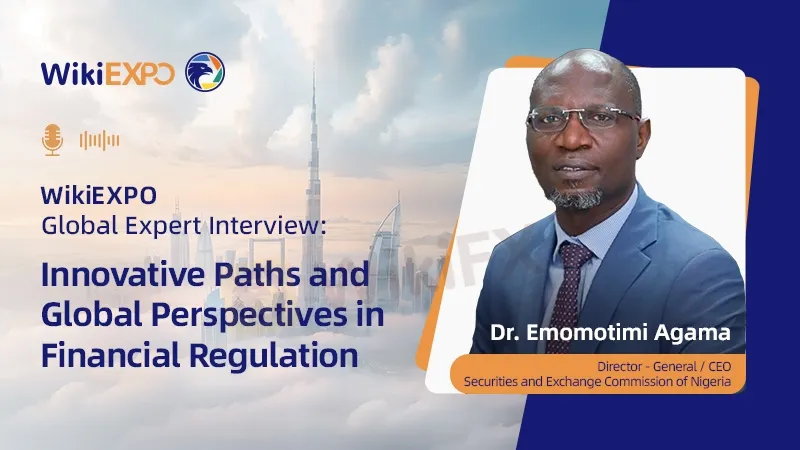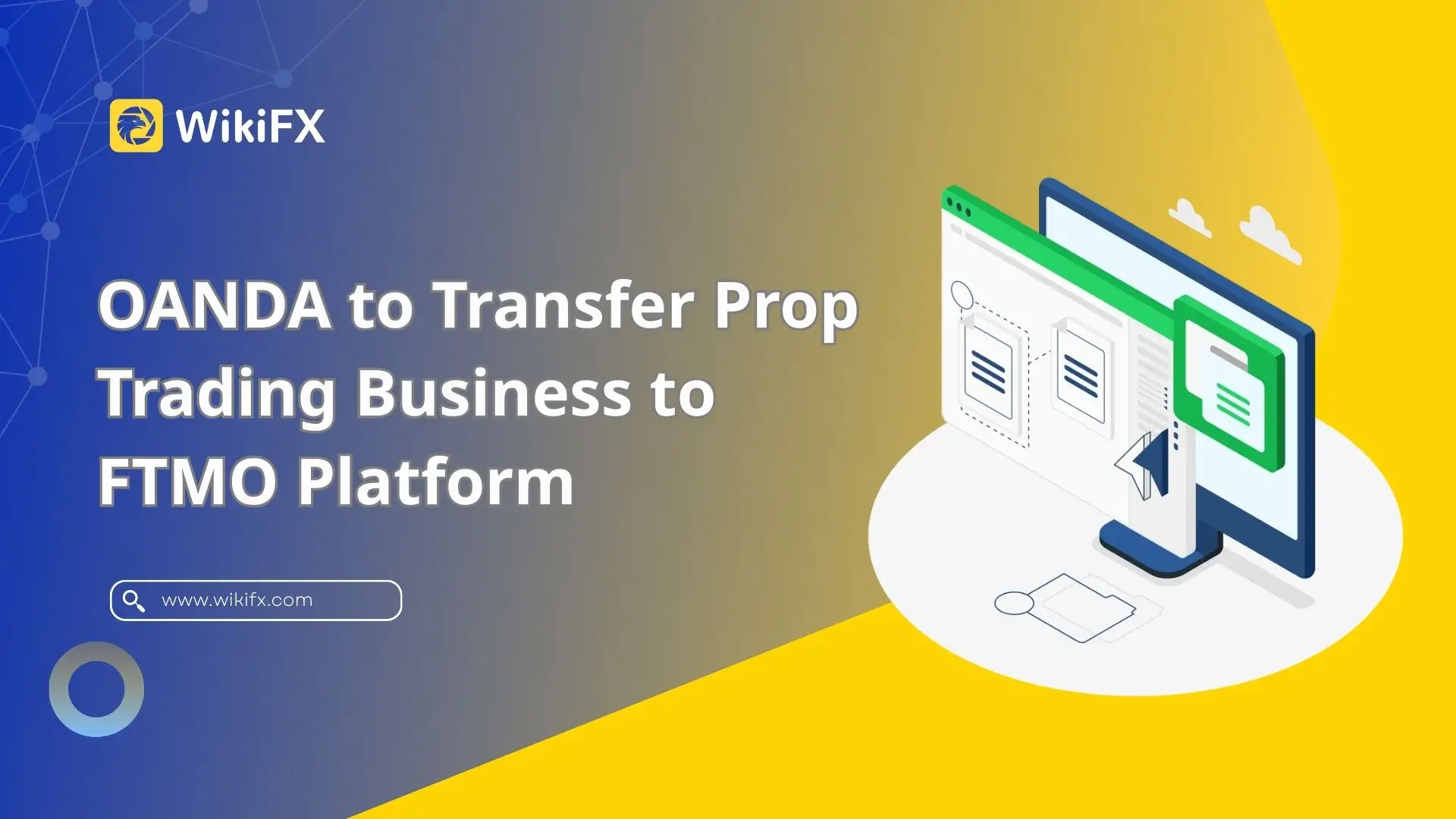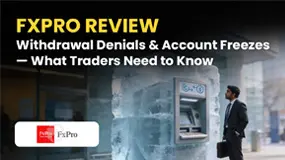OANDA to Transfer Prop Trading Business to FTMO Platform
After FTMO’s acquisition of OANDA, the transfer of the OANDA Prop Trader service to the FTMO platform begins.
简体中文
繁體中文
English
Pусский
日本語
ภาษาไทย
Tiếng Việt
Bahasa Indonesia
Español
हिन्दी
Filippiiniläinen
Français
Deutsch
Português
Türkçe
한국어
العربية
Abstract:In the wave of financial innovation and regulation, WikiGlobal as the organizer of WikiEXPO, closely following industry dynamics and engaging in a series of in-depth and unique interviews on key topics. This time, we are honored to invite Dr. Emomotimi Agama for a profound dialogue.

In the wave of financial innovation and regulation, WikiGlobal as the organizer of WikiEXPO, closely following industry dynamics and engaging in a series of in-depth and unique interviews on key topics. This time, we are honored to invite Dr. Emomotimi Agama for a profound dialogue.
Dr. Emomotimi Agama is not only the Director General of the Securities and Exchange Commission of Nigeria (SEC), but also serves as the Managing Director of the Nigerian Capital Market Institute. He plays a crucial role in promoting financial regulatory reforms in Nigeria and across the African continent, enhancing capital market transparency, and fostering the integration of Fintech with regulatory innovation. With years of experience in the field of financial regulation, Dr. Agama has worked with several international financial regulatory bodies, accumulating valuable cross-border regulatory experience.

As Director-General of SEC Nigeria, Dr. Emomotimi Agama's responsibilities encompass ensuring the stability and integrity of the capital market. This involves overseeing the development and implementation of policies, regulations, and guidelines that promote transparency, accountability, and investor protection. Key areas of focus include:
A. Market surveillance, which involves monitoring market activities to prevent unethical practices such as insider trading and market manipulation.
B. Risk Management by identifying and mitigating potential risks that could impact market stability. Recent collaborations with the Nigerian Financial Intelligence Unit (NFIU) and other stakeholders aim to address systemic risks and safeguard financial integrity.
C. Regulatory compliance that ensures adherence to regulatory requirements among market participants, including clearing backlogs of capital market operators (CMO) registrations and this assures the market that only registered and regulated entities are allowed to operate in the markets.
D. Investor protection also by introducing innovative measures such as the Accelerated Regulatory Incubation Programme (ARIP) to regulate fintech and ensure robust investor protection.
Emomotimi Agama: My top priorities as Director-General include investor protection, market development, and fostering innovation. Recent initiatives to achieve these goals include:
Emomotimi Agama: Balancing oversight with innovation requires a nuanced approach for any regulator. At SEC Nigeria, we:
Emomotimi Agama: Financial regulators face an evolving landscape. Firstly, technological disruptions, for example , navigating challenges like crypto assets and tokenization, which require proactive regulatory innovation at the same time requires flexibility and nuance. Secondly, global coordination with international bodies and regulators in addressing cross-border financial risks and aligning with international standards like AML/CFT especially in an environment with increased cross border transactions. Last but not least, cybersecurity threats and protecting markets from increasingly sophisticated cyber risks.
Emomotimi Agama: To excel in financial regulation, I would recommend:
Emomotimi Agama: Key attributes for success include:
Emomotimi Agama: I believe the future of financial regulation lies in:
In this exclusive interview, we closely explore Emomotimi Agamas career and delve into his insights on the current challenges faced by the financial regulation sector, strategies for addressing these challenges, and perspectives on future developments. As a renowned expert in the international financial regulatory arena, Dr. Agama is dedicated to enhancing the international competitiveness of Nigeria's capital markets and actively participates in the construction and improvement of global financial regulatory frameworks. With his profound expertise and rich practical experience, he provides invaluable intellectual support and practical guidance for financial regulation in Nigeria and globally.

Disclaimer:
The views in this article only represent the author's personal views, and do not constitute investment advice on this platform. This platform does not guarantee the accuracy, completeness and timeliness of the information in the article, and will not be liable for any loss caused by the use of or reliance on the information in the article.

After FTMO’s acquisition of OANDA, the transfer of the OANDA Prop Trader service to the FTMO platform begins.

FxPro, a United Kingdom-based forex broker, has been facing severe allegations concerning fund withdrawal issues, illegitimate account freezes, trade manipulation, and poor customer support. These allegations have been doing the rounds on several broker review platforms such as WikiFX. In this FXPro review article, we have examined these allegations for you to look at. Keep reading to learn how the broker allegedly worsened traders’ experiences.

If you’ve spent more than a few weeks in the forex markets, you already know that leverage is a feature that many traders use, but did you know just how risky it is? Understanding what leverage truly does, and how it connects to pips, margin calls, and risk management, is what separates intermediate traders from beginners.

Although no large-scale public complaints have yet surfaced, we have identified a coordinated cluster of suspicious investment platforms exhibiting strong characteristics of organized fraud operations.
